as the title might infer this is the media i consumed for july. originally this post was a combination of both july and august, as an end-of-summer wrap-up, but it was becoming wayyyy too long, since apparently i have a lot to say about the books i’ve read, and so i decided to split it up. i have nothing else to say for the moment except that here’s one of the playlists i’ve been listening to this summer:
books//
i who have never known men by jacqueline harpman
i will preface this review by saying that i have mixed feelings and simultaneously don’t actually care that much at all but for whatever reason this review ended up being pretty long, and i don’t feel like making it more organized or coherent lol.
i borrowed this from a friend i made at the hostel in ireland i was working at. the premise is essentially that, due to an unknown global catastrophe, a group of 30 or so women have been kept as prisoners in an underground bunker for most likely one or two decades, completely isolated from the outside world aside from just the few security guards that pace outside of their bars. although they have long stopped questioning their bizarre situation, there is one outlier in the group— a (presumably) teenage girl: aka our protagonist, who questions everything incessantly, aches for some more sense of understanding, and, when the situation of the women’s imprisonment suddenly drastically changes, she becomes the driving force of the group. essentially, the protagonist’s world has been stripped down so that she is the only one who has absolutely no conception of how society is: how it was built and functions, what constructions people live by, what people experience and how they define it, etc. with a thirsting curiosity and extremely limited possibilities for learning, she has to come to experience and define things on her own. through all this, jacqueline harpman forces examination all of the constructions that one might live by, including how we define ourselves and what it means to be human. one repeated aspect of this in particular is love/sexuality, for (as one might infer from the title) the protagonist never knows a man, never gets to experience a relationship with a man, and this curiosity about heterosexual love/sex is very strong and consistant in her. i definitely found that aspect in particular outdated, especially as it was constantly repeated. originally published in the 90’s in french, the prose was strong and translated well into english. and although it was very interesting, and i did like it, i think i didn’t love it as many others seem to. there’s not necessarily anything wrong with it; i suppose that the narrator’s/author’s observances on humanity, although provoked by a unique and fascinating sci-fi/dystopian concept, didn’t seem to be as groundbreaking as i’ve seen others describe. i will say however that i recognize that it and all of the philosophical concepts might have felt more inventive when it was first published. in addition i have to admit that the book gripped me very well and i literally read it nonstop within 24 hours. this genre of fiction isn’t normally my thing so i appreciated that it was mainly about the protagonist’s philosophical inner-monologue. i suppose that the plot was (although, as i said, gripping in the sense that i always wanted to know what happened next) ultimately predictable as i was able to guess at most things that happened; also i wanted a slightly more interesting ending. (or maybe the point is the anti-epiphany as representative for “the point of life”?) the dystopian world building set up is too complex to allow the reader to leave it behind and focus only on the philosophical explorations of what it means to be human. as a reader i constantly craved more detail and explanation about the world building set up, and we never know anything (which is fine when the point of the book is more about the narrator’s perceptions of broader things); but like i said, harpman created so many intricate details in the world-building that i read it so fast only because i wanted to understand that aspect more. i definitely understand that this set-up is a way to have the character isolated in a very specific way, but ahhh i don’t know. it still ends up slightly frustrating, unless, of course, that is part of the point.
happening by annie ernaux:
i’ve read one ernaux previously (exteriors), but i’ve realized now that is probably the worst ernaux i could have started with because, although it is still pretty good, it is the one outlier from the style of literally all the rest if her work. when i read happening, after picking it up in a bookstore in galway and finishing it in basically one sitting, i was utterly stunned. in this 76 page novella, annie ernaux retraces, 40 years later, her experience at 23 years old of realizing she is pregnant and searching for an abortion, something nearly impossible to access in 1960’s france. ernaux grapples with so much— shame, truth, class identity, gender identity, the private vs. the public, the personal vs. the societal— and with a temporal distance that also provides a fascinating exploration of memory; of how past events live and remain within us, and what it means to revisit them. additionally, ernaux displays the sheer power in the act of writing; of taking the time to put an experience into Words. some things must be marked down into language, so as not to fade away into the past undocumented, which would remove such occurrences of the importance they can provide in both how we view our history, and how we create our future. all in all, this was vulnerable, beautiful, powerful, and essential, and has sparked an addiction in me for ernaux’s prose and storytelling.
“i have no idea which words will come to me. i have no idea where my writing will take me. i would like to stall this moment and remain in a state of expectancy. maybe i’m afraid that the act of writing will shatter this vision, just like sexual fantasies fade as we have climaxed.”
“i believe that any experience, whatever it’s nature, has the inalienable right to be chronicled. there is no such thing as a lesser truth.”
the transit of venus by shirley hazzard:
i read a third of this in my senior year of highschool and, although i fell completely in love with hazzard’s prose, i got too busy to finish it. this year i lugged it along to europe, thinking of how perfect a spring read it would make. when i restarted it i had just arrived in ireland, and i read it over the span of my stay there. what a beautiful accompaniment to three months. how do i even began to write about it, without accidentally writing an entire thesis?
[ah. as it turns out, i can’t, not with a piece of art so detailed, so dense, where every little thing seems to strike equal importance. and so i will give a simple overview of the plot before providing you with an amalgamation of all the impressions of themes and more that i took from the novel.]
the plot is very simple. the transit of venus follows sisters grace and caroline (caro) bell after they leave australia for england in the 1950’s, and all of their experiences and relationships up into the 1980s. the men most prominently weaving within their lives are paul ivory, ted tice, and christian thrale.
through hazzard’s prose, however, we are able to glimpse into these characters in such a fascinatingly real way, and into relationships familial, romantic, or too complicated to be simply labelled. shirley hazzard is an onlooker of great talent, with her ability to describe her characters so well, so closely and deeply and specifically, and often without literally (textually) going into their minds (the novel is basically in third person) and instead through brilliant details; the environment that surrounds these characters throughout all the stages of their youth and lives, lights and shadows, gazes between eyes, grazings between fingers, seemingly insignificant details to everyday actions, what is said, what is left unsaid, and so much more. more. we experience a deep and detailed submergence into the characters’ lives, in a way that feels very woolfian, specifically because of the presence of time and fate that hazzard places within every moment of the novel. yes; a sense of fate— and the making of it, of destiny, of eternity, and the bigger picture of life, the characters’ lives, and the world as a whole, is constantly looming. as the characters are young, are at the beginning of their lives, there is a sense of their futures, as if their lives are already at their end; their fates are set in place. there is even a certain science to this fate, present within the title alone— the transit of venus, an astrological event fated for failure for a certain astronomer, and fated for a surprise of success for another astronomer (none other than captain cook, colonizer of australia, which brings things almost full circle when one remembers where the bell sisters are from). in this novel, eternity exists within the ephemeral (as every moment and detail feels, in a way almost cursed, to be both). there is a fragility to everything. a sensitivity. a duality. to everything. to existence as a whole. hazzard’s prose is poetry, and one picks up such delicate and specific feelings just from her prose alone. her authorial voice feels to be a certain extra layer of consciousness atop the words and the story, magnifying the impression of all these characters and their lives as part of one large and intricate greek tragedy; and yet, it all somehow feels so real, not at all disconnected from the nature of living “real life”. i am not immune to the Tragedy of Fate.
in addition, i wanted to briefly mention how hazzard seems to write the sisters grace and caro as almost victims not only of all the men around them, but as the novel as a whole. there is a particular focus of the sisters as women, and what influence their womanhood gives on their roles in their relationships, work, family, society, and even the way they consider themselves. it is very interesting, and something i would like to analyze more on an eventual reread.
im including quite a few quotes now because i couldn’t decide, and anyway, this book means a lot to me.
“a bark, a bell, a farmer calling in an animal, a baby’s wail. these were the only sounds, but they struck eternity.”
“the embrace, the room, a bar of light on the ceiling, a vacant luggage-rack in the corner could have been part of seedy insignificance the world over; or might hold the very source of meaning, like the kiss, or flagellation, in the silent background of a masterpiece.”
“he had opened her dress, and the exposed streak of flesh within outdoor clothes was oddly shocking. there was the loosed raincoat and the red unbuttoned bodice, then the secret slit of white. unlike many images of caroline bell he later sought to preserve, this one did fix itself in paul ivory’s memory: the stark wall, the stairs up and down, her red dress; and the flare of her breast which she left gravely revealed, like a confession.”
“she watched him with love that was like a loss of consciousness.”
“the smell of earth was decayed, eternal. flat colours offended, a dreariness full blown: nature caught in an act of erasure.”
“as a man might imagine a clothed woman naked, so in that moment paul saw caro nearly unfleshed, her disclosed pulses tremulus as the cranium of a newborn child. her fear, or rapture, pierced him with unusual shame, as if the encounter exposed him. in a colossal lie; as if this meeting itself were truth.”
“she told ted tice, ‘memory is more than one bargains for. i mean, if it goes on like this, this sense of past, past, past, that can turn even the happiest memories to griefs.’”
selected poems by constantinos p. cavafy:
while some of the poems referencing greek mythology went over my head a bit, i loved some of his other poems that, while a bit simple in language and structure (although that might be due to translation) explored (often erotic) queer desire, and additionally the ephemerality of it— the queer gaze, flaming brief encounters, the memory of desire, etc. there is also a strong theme of identity— of queer identity as political: there are moments of fear of societal condemnation (with some poems really diving into the isolation of this), and at other times there is unapologetic pride in identity. yes, i really enjoyed this, and it was cool to learn of another queer greek poet ;)
fav poems were: voices; the satrapy; ionic; one night; he vows; chandelier; since nine o’clock; in the evening; to live; that they may come; i have brought to art; theatre of sidon (AD 400)
“i ran toward pleasures that were half real // and half spun by my own mind.” ~ (excerpt from) “i left”
“the room was shabby and miserable, // tucked above a suspect tavern. // a window opened on to the alley, // narrow and unclean. from the tavern beneath // came the voices of workmen // playing cards and carousing. //// there, in that humble, commonplace bed, // i possessed the body of love; i possessed // those sensual, rose-red lips of intoxication — // red lips so intoxicating that even now, // as i write these lines, after so many years // all alone in this house, i am drunk with it again.” ~ “one night”
“he’s lost him for good; / and now on the lips // of each new lover / he seeks the lips // of the one he lost” ~ (excerpt from) “in despair”
foster by claire keegan (audiobook):
i listened to this as i wandered around the little peninsula in co. kerry in ireland that i had been staying at. i figured, why not consume more irish lit before i leave. we follow a young girl and her experience staying with a different family for a bit, and how she blossoms when she is truly seen for the first time. this was sweet, but i liked the film a lot better, and this being my second claire keegan that i didn’t care too much for, i think she’s just not for me. to be fair it definitely doesn’t help i listened to it on audiobook instead of reading it, as i’ve learned that i rarely take in the content when i do so, but, oh well, i had a ton of audible credits, so…
other//
endgame by samuel beckett (play)
seen at druid theatre company in galway, ireland. it had been many many months since i had gone and seen a play. i quickly remembered how much i cherish that experience, the routine of going to see a play and being surrounded by all the people and being a part of the audience and experiencing the magic… ahh, i love theatre. plus, this was my introduction to beckett!
films// (letterboxd is 2wicebitten)
(it’s almost embarrassing how many bad queer films i rewatched at the beginning of this month; i don’t wanna talk about it.)
honestly, this film isn’t even that bad *at the beginning*. i only rewatched it because i had just seen it once many years ago, and wanted to form my opinion on it now that i’m not fourteen years old or whatever. well, i thought it was mainly bad then, and still feel that way now. it’s no secret that anything good about the film is absolutely ruined by the sexualization of the characters and of lesbians in general, the heinous sex scenes, the mischaracterization of lesbians, and more, not to mention the literal trauma that these two incredible actors experienced from the director in the production of this film. it is a shame, because it could have been a meaningful and touching queer coming of age story. i’m not even completely upset about the inclusion of predatory lesbian trope of lea’s character being way too old for adele’s character who is a minor and high schooler (although, don’t worry, i still don’t love it and i’m aware of it’s harm); because if, theoretically, all the other problematic aspects of this film were fixed but this aspect was kept, it would end up falling more in line with CMBYN, and we would experience a queer coming of age story about a character who realizes her queerness within a problematic relationship, and i think that that can have some interesting nuance.
really really stunning story about the ghosts of love, whilst not being isolated from the influence and corruption of societal/political issues on these things (in this case, late stage capitalist exploitation and wealth gaps and the senegalese migrant crisis). i think diop’s mixing of stark political reality and the surreality in love/dreaming/desire/memory is really essential and something i wish i saw more in film (saint omer, lazzaro felice, and la chimera are films i really loved that i feel similarly do this— because, yes, these things are always connected, and there are deep, almost spiritual, consequences to societal corruptions). in all, beautiful, and haunting.
it’s fine idk. can’t lie tho sometimes a film like this is exactly what i need.
again, its fine (or honestly, it’s kind of just bad). but i do kind of like dakota johnson. she’s cute. cast her in more lesbian roles is all i have to say.
now, this film definitely isn’t incredible, but it holds this energy of intense and tragic queer heartbreak that is, while totally dramatic for so much of the film’s context, is also just kind of iconic? like, yeah, this movie is just iconic. it’s such a moment in queer coming of age film that i’m kind of obsessed with it, obsessed with how it’s too dramatic for its own good. and, i’d one-million-percent choose this over dead poets society.
hmm idk have i mentioned the fact that todd haynes is one of the best current directors and i don’t believe he’s capable of making a bad film? i suppose i’ve given my haynes praise many times and so i don’t need to do it again here, but yeah, this film is really special and awesome and after i finished it i had to go sit outside at 3am and smoke a bit while listening to a live version ‘gimme danger’ over and over again.
i rewatched this with a friend and i totally forgot how fun and lowkey insane this is. perfect crazy xmas watch with a group of friends.
i watched this because i read the book ages ago, and i like to watch film adaptations of books. i didn’t particularly love the book but this was just fine… kind of makes everything about the book more boring.
a group of friends and i, um, consumed a particular substance along with the characters in this film, and this movie became a film that i didn’t care much for to a film that i thought was very fun and hilarious. so yeah!
it’s fine, kind of crazy and fun i guess. the fact it’s based off a true story and a twitter thread is crazy for sure. idk i don’t care for most a24 films.
i’m often picky of film adaptations of books, but this one for ernaux’s happening does nothing wrong, and the lead actress is phenomenal.
this was a much needed rewatch, especially after my time in italy thinking a lot about italian film; i love this film and pasolini, and i bought the book recently so i’ll have to give that a go soon. a pasolini deep dive is much overdue for me.
definitely not as bad as people act! like many other films i watched this month, it’s just alright, haha.
i really disliked this for many reasons; aside from being problematic i think as a horror film its just Bad, but honestly i don’t care enough to go into depth rn.
a film i had been meaning to watch forever, after just being familiar with one scene from the play from an acting class i took when i was 18. this film stunned me way more than i expected, and was way more nuanced than i expected! and phenomenal acting.
sometimes short films aren’t as good as i want them to be because it can be difficult to feel like they engage with their themes deep enough when their shorter. when they do succeed, however, it’s really incredible, and this short film about a parisian, partying, humanly-flawed trans woman was definitely the case. i would love to see a feature film of this!
timeless and iconic indie lesbian movie. explores what it means to document history (black lesbian history at that) by breaking boundaries of documentary and fiction, while also having some charming and sexy lesbian moments, and consequently cementing itself as its own piece of black lesbian history! i love cheryl dunye. thankful to have seen this irl @ the irish film institute !! (seriously don’t miss that place if you’re ever in dublin)
thank you for reading! as i said i split this post in half due to length so my august wrap up is coming very soon. have you read or seen any of these and if so what are your thoughts? are there any books you’ve read or films you’ve watched recently that you enjoyed and recommend? talk to me in the comments <3


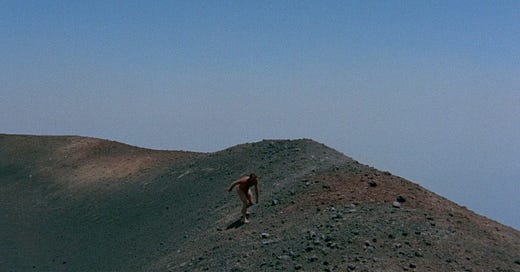



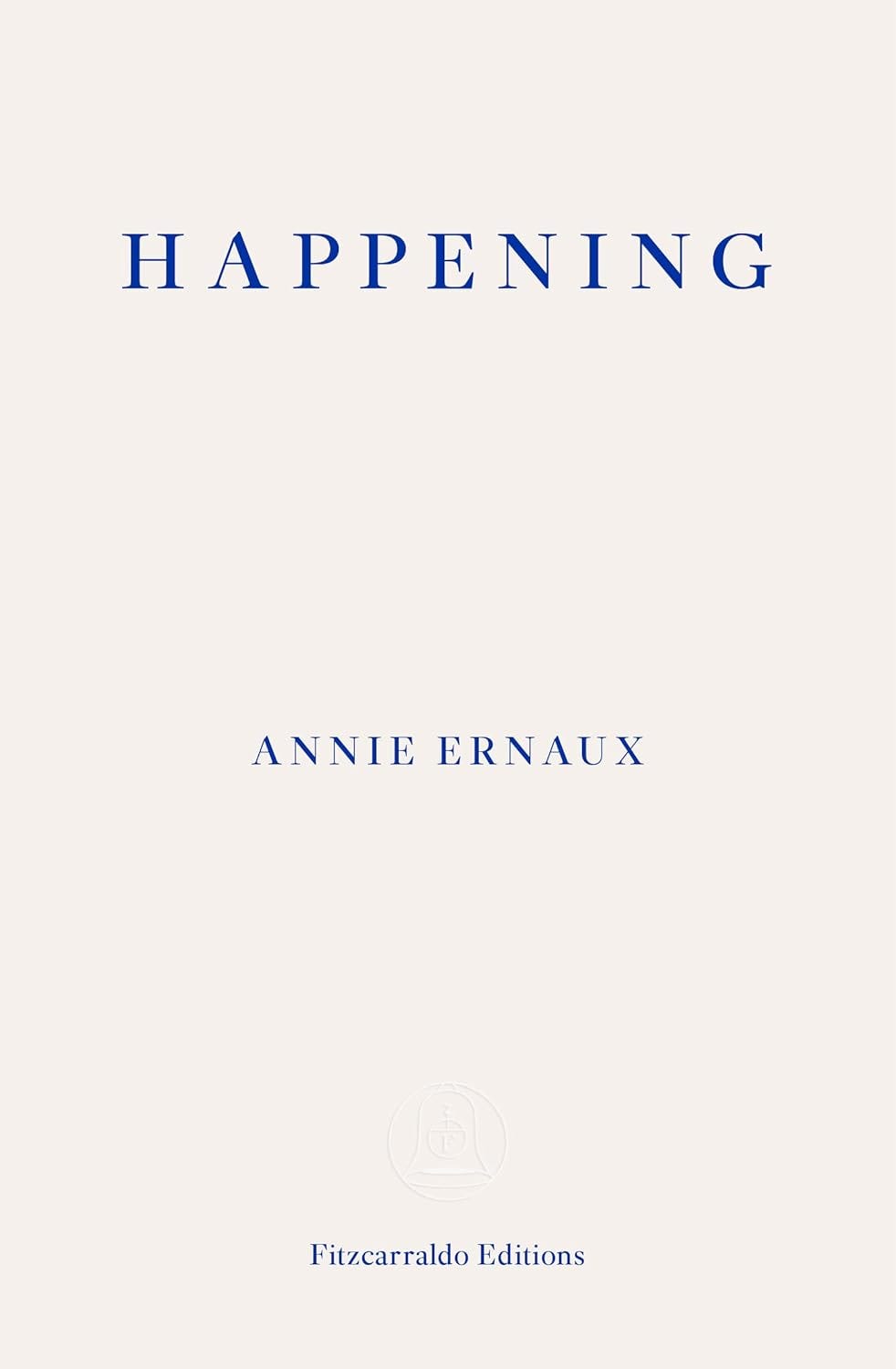
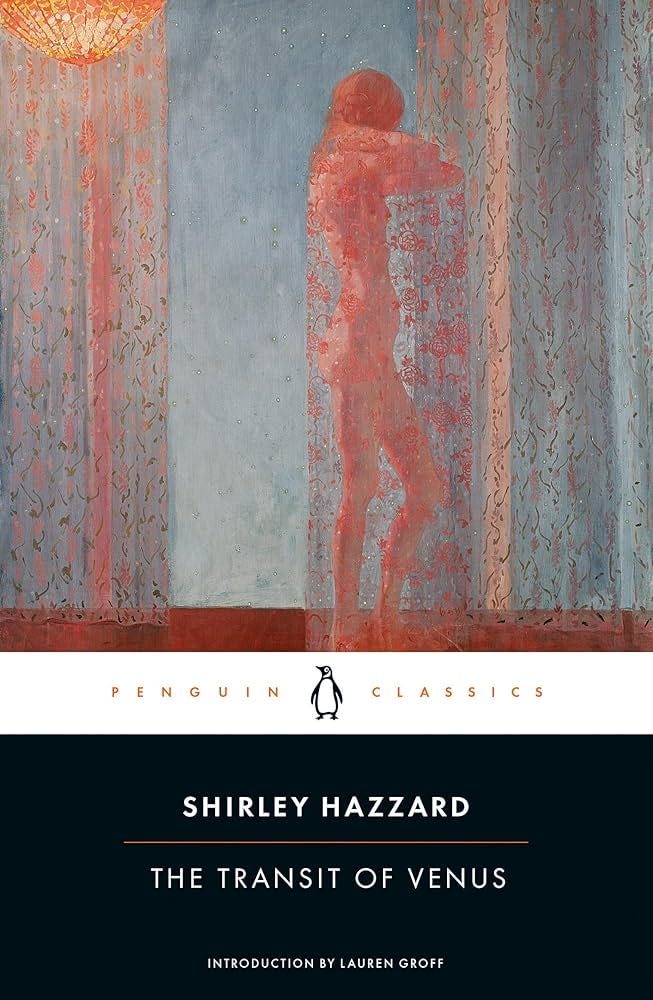
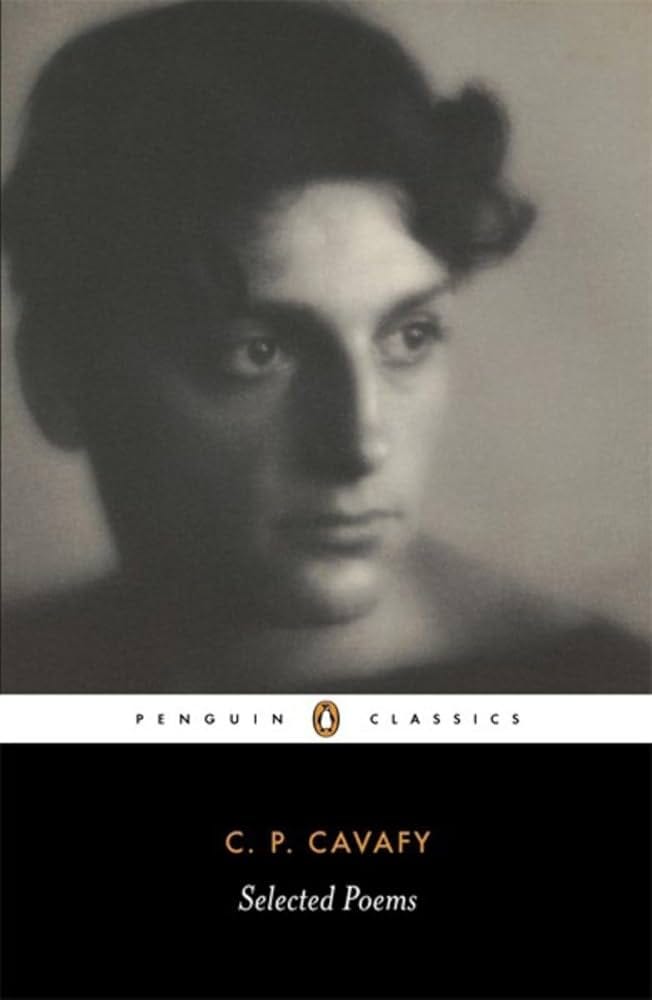


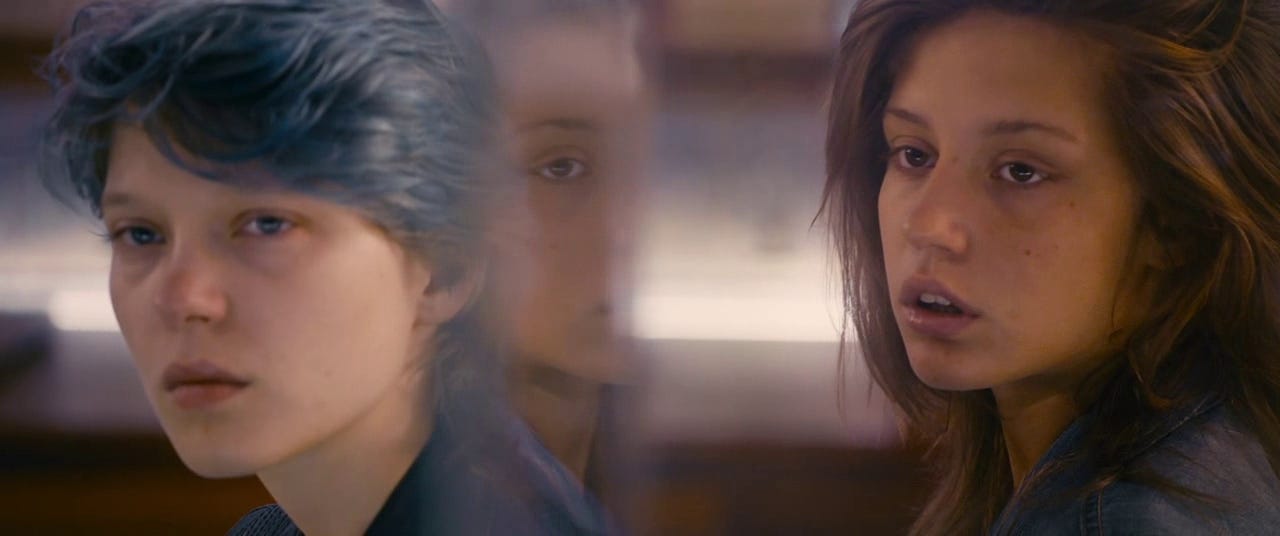

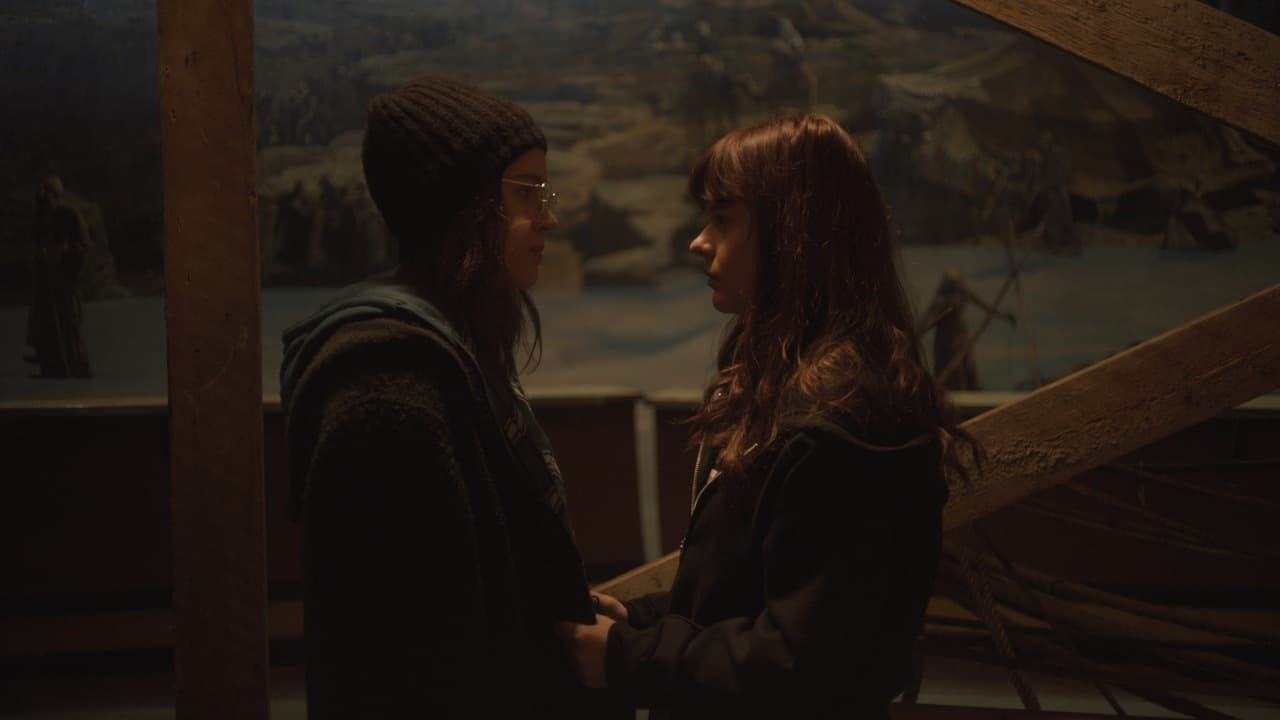

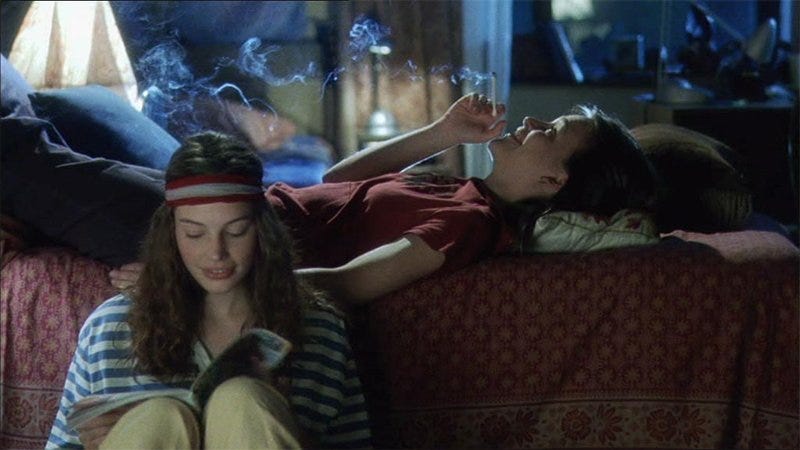

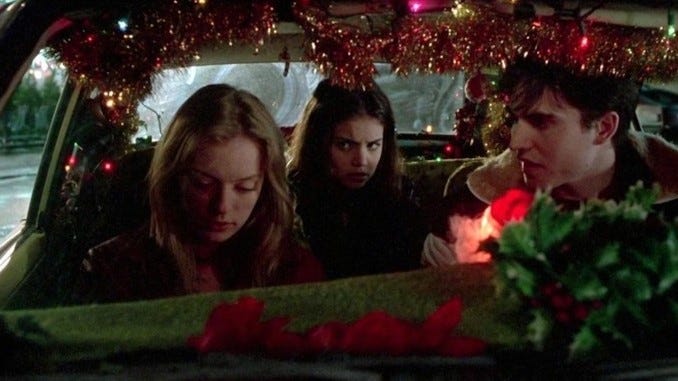
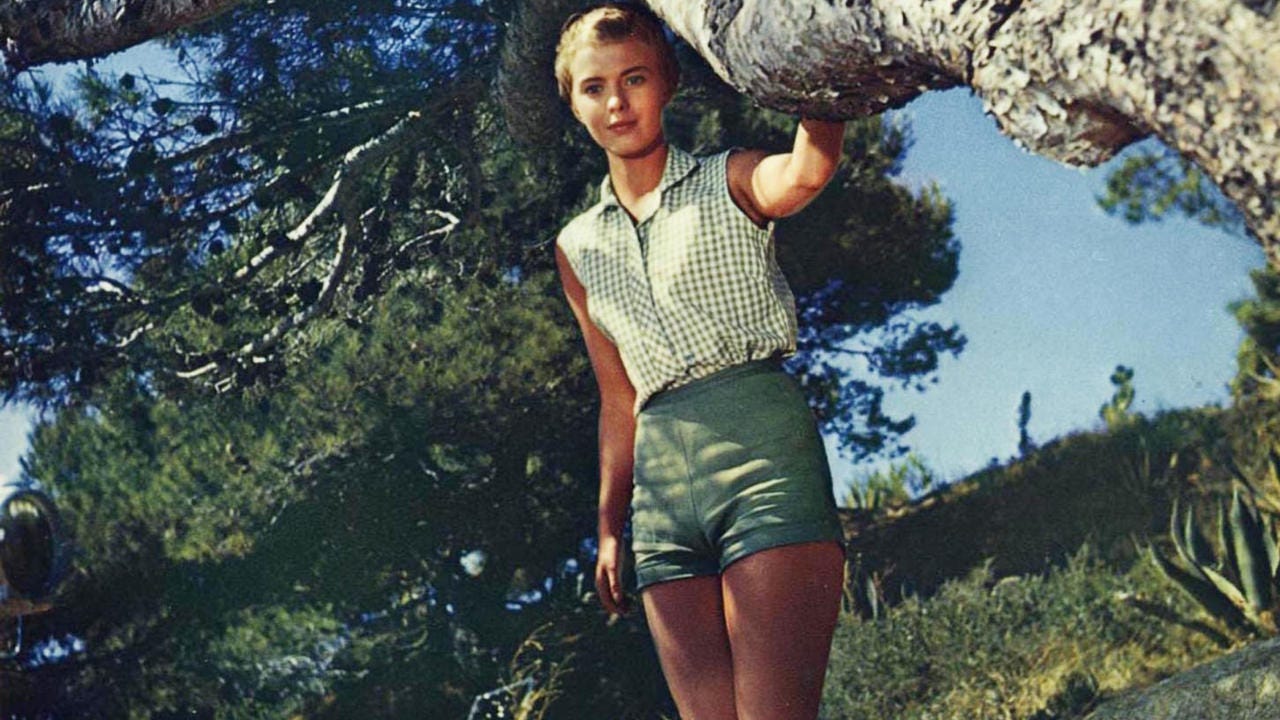


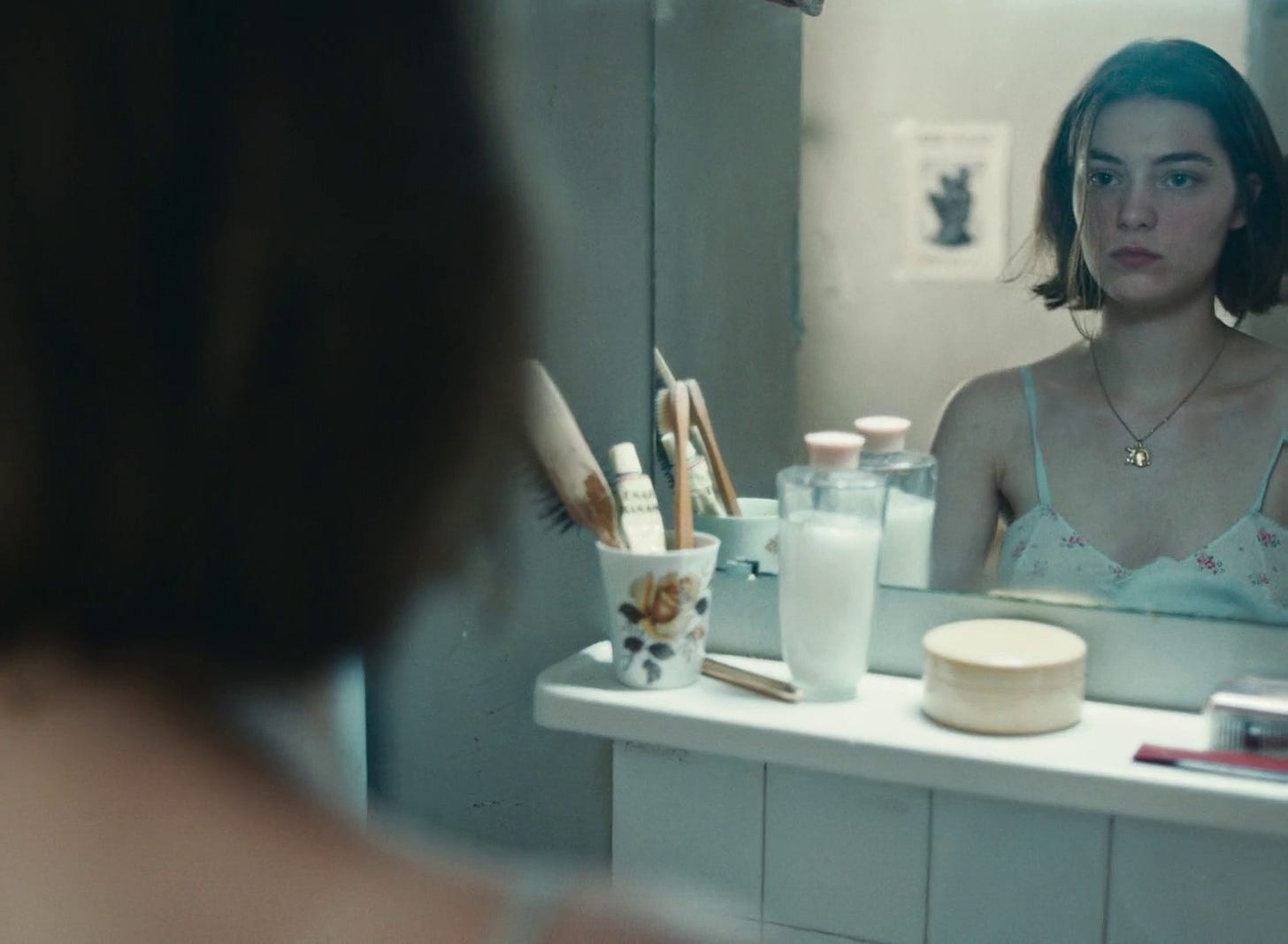

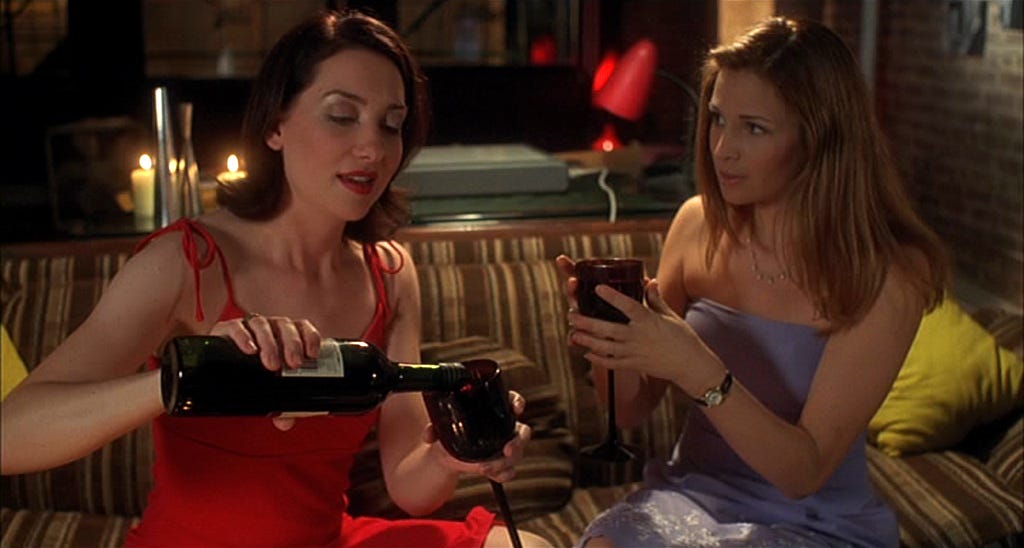
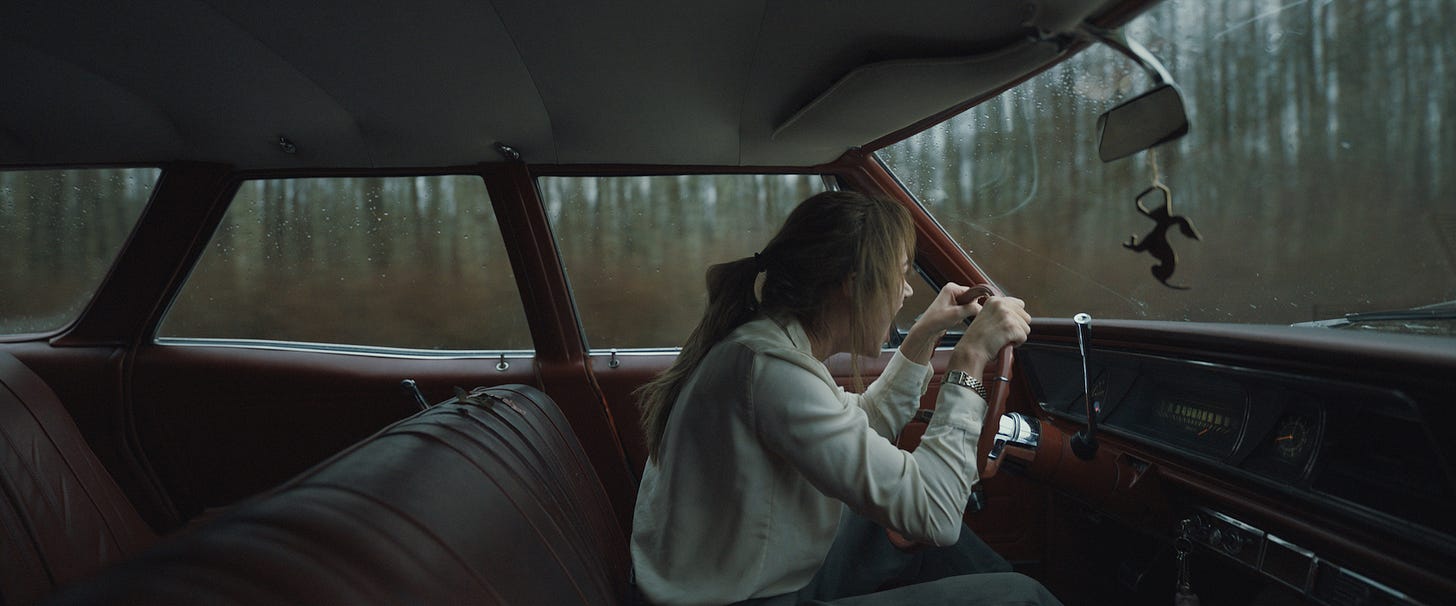
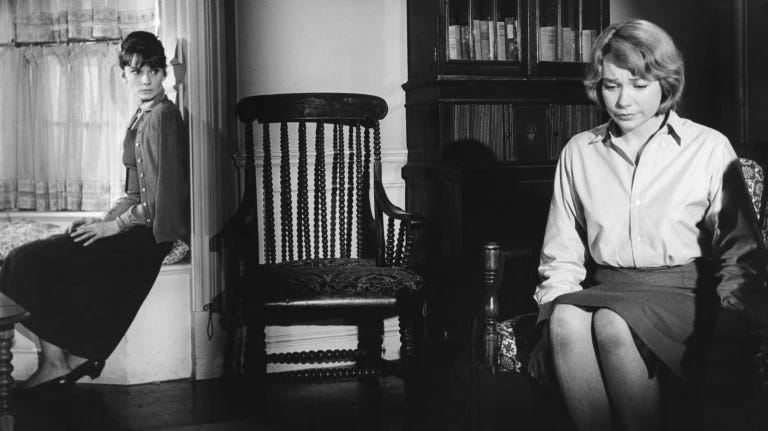


This is crazy-- i came across your spotify a long time ago (big fan) and then was looking through my feed and your substack appeared...amazing. I'm also obsessed with annie ernaux, I have yet to read happening!!
I had never heard of The transit of Venus and now i’m intrigued!! i also hated Longlegs lol